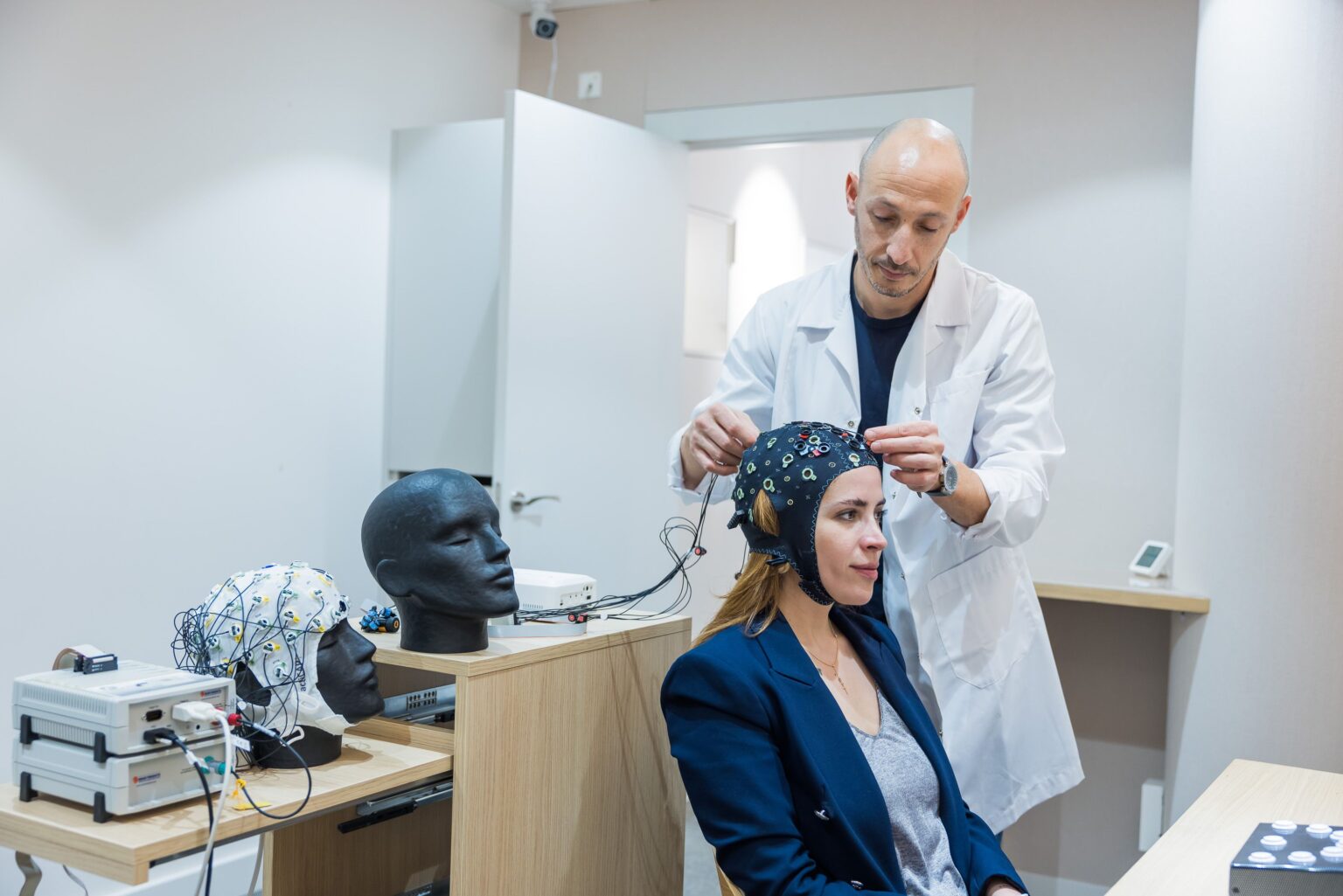Here’s the translated text in American English:
—
The Advanced Neuroscience Institute of Barcelona (INAB) has inaugurated its new research center at the Norrsken Foundation, establishing itself as a leader in the exploration of the human mind. With a focus on neuroscience, INAB develops innovative projects that range from the emotional impact on cell proliferation to cognitive vision.
Under the direction of Dr. David del Rosario, the institute is committed to turning scientific knowledge into practical tools for everyday life, challenging the traditional boundaries of neuroscience. Its goal is to promote a more conscious and collaborative society through in-depth research on perception and awareness.
This laboratory stands out for its use of advanced technologies, such as high-density electroencephalography (EEG) and functional near-infrared spectroscopy (fNIRS), creating an environment conducive to the well-being of both researchers and participants. Dr. Xavi Ginesta, co-founder of INAB, points out that this space aims to foster scientific curiosity and move away from outdated ideas.
Current projects encompass a variety of phenomena within neuroscience, focusing on how cognitive and emotional responses are generated at the neuronal level. Among these, less explored topics are investigated, such as brain synchrony during shared sensory experiences and the effect of noise and silence on cellular dynamics. One of the most fascinating studies focuses on “extraocular vision,” analyzing the influence of temporary visual deficits in children and their potential therapeutic applications.
Recently, INAB published a study revealing how acoustic waves generated by states of gratitude in the human voice can influence cell proliferation. This finding opens new avenues in understanding the interaction between emotions, sound, and biology, as well as in the field of sonobiology, which investigates the impact of sound waves on biological processes, offering new opportunities for regenerative medicine.
The institute also collaborates with universities to develop acoustic panels made from recycled materials, which have proven effective in reducing noise and safe for health. Additionally, INAB is interested in working conditions, creating tools that allow for the measurement of employees’ emotional and cognitive presence in their tasks, with the aim of fostering well-being for both individuals and companies.
—
If you need any further modifications or additional content, let me know!
Referrer: MiMub in Spanish










